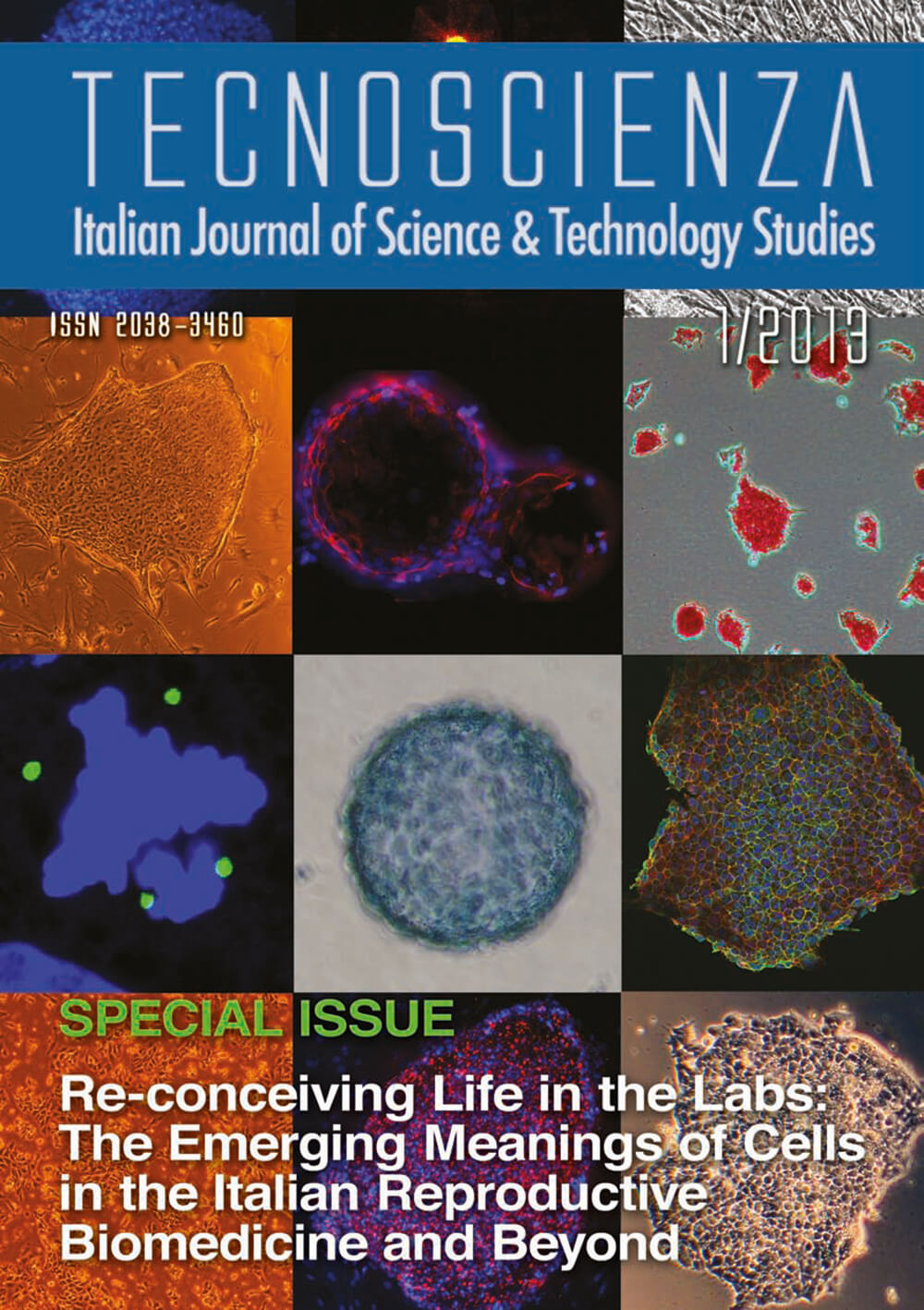“Sidestepping the Embryo”. The Cultural Meaning and Political Uses of Ethical Stem Cells
DOI:
https://doi.org/10.6092/issn.2038-3460/17091Keywords:
ethical stem cells, human embryo, bioethics, biotechnologies, ItalyAbstract
In many countries, stem cell research is embroiled in heated ethical and political debates because the most valued stem cell types are human embryonic stem cells (hESCs) taken from a few-days old human embryo which is destroyed during the harvesting procedure. ‘Ethical stem cells’ is the label commonly used to denote an array of cellular reprogramming techniques, biological artifacts, and somatic stem cells which make it possible to obtain pluripotent stem cells while avoiding the use of human embryos. This paper, by focusing on the Italian case, analyzes the cultural meaning and the political uses of these bio-objects which incorporate in their ontology the social and ethical quandaries raised by stem cell research in order to sidestep them. The debate on ethical stem cells shows a new way to deal with ethical commitments in biosciences and throws light on the process of regulatory ordering and normativity production in regard to biotechnological innovations.





